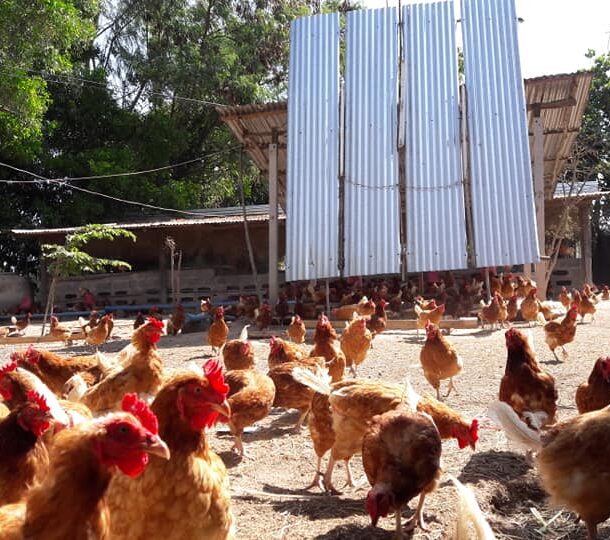
Smart Questions คือ การที่รู้จักการตั้งคำถามอย่างชาญฉลาด เพื่อให้คู่สนทนาของเราเปิดเผยข้อมูลเชิงลึก หรือ ความรู้สึกภายในที่เขาอาจจะไม่ได้บอกเราในตอนแรกออกมา หรือ เป็นการช่วยในการสร้างความสัมพันธ์ที่ดีในระหว่างสนทนา ผ่านการชวนคุย ชวนคิด ชวนแลกเปลี่ยนมุมมอง และข้อมูลเป็นต้น
ตัวอย่างในเรื่องของการสัมภาษณ์งาน คนส่วนใหญ่เมื่อรู้ว่าตนเองจะได้ไปสัมภาษณ์งาน สิ่งที่พวกเขามักจะทำก็คือ การค้นคว้าหาข้อมูลเกี่ยวกับบริษัท และ เก็งคำถามที่อาจจะถูกถามในสัมภาษณ์งาน พร้อมๆ ไปกับสรรหาคำตอบที่คิดว่าหากตอบไปแล้วจะทำให้ผ่านฉลุย ได้งานแน่ๆ แต่สิ่งที่คนส่วนใหญ่มักจะไม่ได้เตรียมตัวไปก็คือ เมื่อต้องเจอกับคำถามที่ผู้สัมภาษณ์ถามว่า “คุณมีอะไรจะถามเราไหม?”

คำถามนี้จะเกิดขึ้นในช่วงท้ายๆ ของการสัมภาษณ์งาน เพราะถือเป็นช่วงเวลาที่ผู้สัมภาษณ์เขาเปิดโอกาสให้เราได้มีโอกาสสอบถามเขาในเรื่องที่สงสัยหรืออยากรู้ แต่ประเด็นที่พบก็คือ หลายคนกลับไม่ถามอะไรเลย ทั้งๆ ที่บางคนอาจจะอยากรู้ในบางเรื่องแต่ก็ไม่รู้ว่าควรถามดีไหม? หรือ ไม่รู้ว่าจะตั้งคำถามอย่างไร? ก็เลยปล่อยให้การสัมภาษณ์งานจบลงไปแบบค้างคาใจ
ในบทความนี้ เราจะมาเรียนรู้หลักการ Smart Questions เพื่อนำมาใช้ในการสัมภาษณ์งานกัน เราจะได้เข้าใจว่าเมื่อต้องเจอกับคำถามที่ว่า “คุณมีอะไรจะถามทางบริษัทของเราไหม?” เราควรจะตอบสนองอย่างไร คำถามแบบไหนที่ควรจะใช้ถามและคำถามแบบไหนที่ควรหลีกเลี่ยง และ อื่นๆ
2 เป้าหมายที่เราต้องไปให้ถึงด้วยการตั้งคำถาม
เป้าหมายแรกของเราก็คือ การใช้คำถามเหล่านี้เพื่อช่วยเราในการพิจารณาว่าโอกาสนี้เหมาะกับเราหรือไม่ เราจะได้ประเมินองค์กรและตัดสินใจกับตัวเองว่าเราอยากทำงานที่นี่จริงหรือเปล่า? แต่การตั้งคำถามไม่ได้จบแค่ตรงนั้น การตั้งคำถามยังเป็นการพิสูจน์ว่าเราเป็นคนที่ดีที่สุดสำหรับงานนี้ด้วยหรือเปล่า เป้าหมายที่สองของเราก็คือ การพิสูจน์ว่าตัวเราเองเหมาะกับโอกาสนี้จริงๆ และถ้าตอนนี้เรายังไม่มีรายการคำถามไว้ในสมุดหรือเก็บเอาไว้ในมือถือของเรา เราก็ควรเริ่มทำมันเลยตั้งแต่ตอนนี้ เพื่อให้เราได้คำถามที่เหมาะสมกับตัวเราเองที่สุด
“ถามอย่างมีชั้นเชิง และปรับแต่งคำถามให้เข้ากับตัวเรามากที่สุด”
วิธีหรือภาษาที่เราใช้ในการตั้งคำถามมีความสำคัญมาก แทนที่จะใช้ภาษาทั่วไป เราต้องแสดงให้เห็นว่าคำถามที่เราใช้นั้น มันเกี่ยวข้องกับเราโดยเฉพาะจริงๆ ยกตัวอย่างเช่น แทนที่เราจะถามว่า “วันธรรมดาเป็นอย่างไร?” เราต้องถามว่า “โดยปกติแล้วหากเราต้องทำงานในตำแหน่งนี้จะเป็นอย่างไร?” คำถามนี้จะทำให้ผู้ว่าจ้างมองเห็นเราในบทบาทที่เป็นไปได้ในการทำงาน ซึ่งวิธีนี้ถือเป็นกลอุบายทางจิตวิทยาที่ยอดเยี่ยม เพราะทันทีที่พวกเขานึกภาพว่าเราได้ทำงานอยู่ที่นั่น มันก็ยากที่จะลบภาพนี้ทิ้งไป
“กุญแจสำคัญ คือ การทำให้ส่วนนี้ของการสัมภาษณ์รู้สึกเหมือนเป็นการสนทนาที่ต่อเนื่อง”
เราจำเป็นจะต้องจัดการกับสิ่งที่เกิดขึ้นระหว่างการสัมภาษณ์ให้ได้ดี การตั้งคำถามที่สร้างโอกาสในการเปิดบทสนทนาจะทำให้เราและผู้สัมภาษณ์ต่อยอดจนกลายเป็นบทสนทนาที่ทำให้ทั้งสองฝ่ายรู้สึกว่ามันคือการพูดคุยในครั้งนี้เป็นสิ่งที่ดี ตัวอย่างเช่น เราอาจจะพูดคุยเกี่ยวกับเนื้องานที่ผู้สัมภาษณ์ถามเราในช่วงการสัมภาษณ์ และหากได้เข้าไปทำงานเราต้องติดตามโปรเจคนั้นอย่างไร? ความก้าวหน้าของโปรเจคนั้นที่ผ่านมาเป็นอย่างไร? หรือ ความรับผิดชอบที่เราไม่เห็นในรายละเอียดงานมีอะไรบ้าง? เป็นต้น
นี่คือตัวอย่างประเภทคำถาม ที่เรียกว่าเป็น Smart Questions ที่เราจะสามารถเลือกนำไปใช้เพื่อให้เหมาะสมกับสถานการณ์และปรับแต่งให้มันเหมาะสมกับตัวเรามากที่สุดในการสัมภาษณ์งานได้ ดังต่อไปนี้
คำถามเฉพาะเกี่ยวกับงาน
- ทางบริษัท หรือ องค์กร คาดหวังอะไรในตัวเรากับบทบาทในตำแหน่งนี้?
- อะไรคือสิ่งสำคัญที่สุด ที่เราควรทำให้สำเร็จ ลุล่วงใน 90 วันแรก?
- วิธีการในการประเมินการผลการทำงานที่นี่เป็นอย่างไร และในช่วงแรกเราจะต้องถูกประเมินบ่อยแค่ไหน?
- อะไรคือ ตัวชี้วัดหรือความสำเร็จ ที่จะถูกนำมาใช้ในการประเมินการทำงานของเรา?
- อะไรคือโครงการเร่งด่วนที่สุดที่เราต้องทำ?
- นานแค่ไหนกว่าที่เราจะได้มีโอกาสพบปะลูกค้า หรือ มีงานที่ต้องอยู่ภายในความรับผิดชอบของตัวเอง หรือ เริ่มทำงานร่วมกับแผนกอื่นได้?
คำถามเกี่ยวกับทีมงาน
- ความสามารถประเภทไหนที่ทีมงานยังขาด และทางบริษัทหรือองค์กรกำลังมองหาในการรับสมัครงานครั้งนี้?
- ความท้าทายที่ใหญ่ที่สุด ที่เราอาจจะได้เจอจากการทำงานตำแหน่งนี้คืออะไร ?
- บริษัทหรือองค์กร คิดว่าความรับผิดชอบหลักในตำแหน่งนี้ของเราจะถูกปรับเปลี่ยนใน 6 เดือนข้างหน้าหรือไม่?
- ช่วยเล่าเรื่องทีมงานที่เราต้องทำงานด้วยให้เราฟังหน่อยได้ไหม?
- ใครคือคนที่เราต้องทำงานใกล้ชิดด้วยมากที่สุด? แผนกหรือหน่วยงานใดที่เราต้องเข้าไปทำงานร่วมด้วย?
- อะไรคือจุดแข็งของทีมงาน และอะไรคือความท้าทายที่เขากำลังเผชิญหน้าอยู่?
คำถามเกี่ยวกับศักยภาพของหัวหน้า
ถ้าผู้สัมภาษณ์ของเรา คือหัวหน้าเรายิ่งต้องถามคำถามเหล่านี้
- คุณ (หัวหน้า) ทำงานบริษัทนี้มานานแค่ไหน?
- คุณ ทำงานในตำแหน่งนี้มานานเท่าไร?
- งานส่วนไหนของที่นี่ ที่คุณชอบที่สุด?
คำถามเกี่ยวกับองค์กรหรือบริษัท
หลีกเลี่ยงและอย่าถามในสิ่งที่เราเองก็สามารถค้นหาคำตอบใน Google ได้อย่างง่ายดาย เพราะคำถามพวกนั้นอยู่ในประเภทคำถามที่ไม่ควรถาม และ หากถามไปก็จะเป็นการแสดงให้เห็นว่าเราไม่ได้ทำการบ้านและไม่ได้เตรียมตัวมาสัมภาษณ์งาน
- เป้าหมายที่บริษัทหรือองค์กร กำลังให้ความสนใจอยู่ในตอนนี้คืออะไร และทีมมีการทำงานอย่างไรเพื่อไปให้ถึงเป้าหมายนั้น?
- อะไรที่คุณตื่นเต้นที่สุดเกี่ยวกับอนาคตของบริษัท?
- คุณจะอธิบายค่านิยมขององค์กรว่าอย่างไร?
- องค์กรมีการเปลี่ยนแปลงอะไรไปบ้างจากปีที่แล้ว?
- องค์กรมีแผนในการเติบโตหรือการพัฒนาอะไรบ้าง?
คำถามเกี่ยวกับวัฒนธรรมองค์กร
เราควรเตรียมตั้งคำถามที่เกี่ยวกับวัฒนธรรมองค์กรเอาไว้ด้วย เพราะในระหว่างการสัมภาษณ์มันอาจจะเป็นเรื่องยากที่ผู้สัมภาษณ์จะเล่าให้เราฟังว่าวัฒนธรรมองค์กรที่เขาปฏิบัติกันอยู่เป็นอย่างไร? และเราเองก็อาจจะอยากรู้ว่าบริษัทหรืองอค์กรนี้ ไม่เป็นที่ยอมรับหรือมีวัฒนธรรมที่เป็นพิษอยู่หรือเปล่า? เราสามารถเข้าถึงวัฒนธรรมของบริษัทได้โดยที่เราไม่จำเป็นต้องเอ่ยถามอย่างตรงไปตรงมา เพราะ “คำถามช่วยเราในการค้นหาส่วนที่เราคาดไม่ถึงเกี่ยวกับศักยภาพของที่ทำงานใหม่ของเรา”
- โดยทั่วไปแล้ว คุณมีการทำงานร่วมกับพนักงานคนอื่นอย่างไร?
- หากตำแหน่งงานนี้จะต้องทำงานในต่างพื้นที่ เช่นต่างจังหวัด ให้ถามเฉพาะเจาะจงว่า พนักงานที่อยู่ห่างไกลพวกเขาจะถูกรวมเข้ากับวัฒนธรรมของบริษัทอย่างไร?
- พนักงานใหม่ มักพบว่าอะไรบ้างที่เป็นเรื่องน่าตื่นเต้นหลังจากเริ่มทำงาน?
- มีอะไรที่เราควรอ่านก่อนเริ่มทำงานไหม ที่จะช่วยให้เราได้เข้าใจหรือสามารถทำงานกับเพื่อนร่วมงานคนอื่นได้?
- ประเพณีอะไรขององค์กรที่คุณชอบมากที่สุด?
- คุณและทีมของคุณ ทำกิจกรรมอะไรกันบ้างในช่วงพักกลางวัน หรือ พักเบรค?
- คุณได้เข้าร่วมการทำงานกับแผนกหรือทีมอื่นอย่างไรบ้าง?
- การทำงานกับที่นี่แตกต่างจากการทำงานที่อื่นที่คุณเคยผ่านมาอย่างไร?
- องค์กรเปลี่ยนไปอย่างไรบ้างตั้งแต่ที่คุณเข้ามาทำงาน?
คำถามเกี่ยวกับความเป็นมืออาชีพ เส้นทางสายอาชีพนี้ และโอกาสในอนาคต
คำถามนี้เป็นการวิเคราะห์เพื่อทำความเข้าใจการเติบโตและการพัฒนาในสายอาชีพที่เรากำลังมองหาจากงานนี้ เพราะเราเองก็ต้องการแน่ใจว่าเราจะได้งานที่น่าสนใจ ไม่ใช่แค่เปลี่ยนงานมาแต่ก็ต้องมาทำงานแบเดิมๆ นอกจากนี้เราควรทำความเข้าใจ มองเส้นทางที่หลากหลายที่เราสามารถไปต่อได้ภายในองค์กรนี้เอาไว้ด้วย
- เราจะมีโอกาสในการเรียนรู้และพัฒนาอย่างไรจากการทำงานในบทบาทนี้?
- ทีมที่เราจะได้เข้าไปทำงานด้วยมีการเติบโตอย่างมืออาชีพอย่างไร?
- ยกตัวอย่างอาชีพที่เริ่มต้นเส้นทางจากแผนกนี้ให้ฟังได้ไหม?
- สายอาชีพทั่วไปที่ทำงานในตำแหน่งนี้คืออะไร?
- โดยปกติแล้วจะมีการเลื่อนขั้นให้พนักงานอย่างไร?
- พนักงานที่ประสบความสำเร็จ จะมีการย้ายไปอยู่ที่ใหน?
คำถามเพื่อปิดบทสนทนา
- ยังมีอะไรที่ฉันควรรู้ แล้วฉันยังไม่ได้เอ่ยถามคุณหรือไม่?
- คุณต้องการให้ฉันเตรียมอะไรให้คุณเพิ่มเติมเพื่อประกอบการพิจารณาอีกไหม?
- มีอะไรที่ฉันควรอธิบายแจกแจงเกี่ยวกับคุณสมบัติของฉันเพิ่มเติมอีกไหม?
- กระบวนการจ้างงานหลังจากสัมภาษณ์เป็นอย่างไร?
กลุ่มคำถามที่เราควรหลีกเลี่ยง
- ที่นี่ให้เงินเดือนเริ่มต้นเท่าไร?
- ที่นี่มีประกันชีวิตหรือประกันสุขภาพอย่างไรบ้าง?
- นโยบายการลาแบบได้รับค่าจ้างขององค์กรมีอะไรบ้าง?
เราควรต้องหลีกเลี่ยงคำถามเกี่ยวกับเงินเดือนและสิทธิประโยชน์ในการสัมภาษณ์ เพราะเรายังไม่ได้อยู่ในจุดที่สามารถเจรจาอะไรในตอนนี้ ในขั้นตอนสัมภาษณ์ในครั้งแรก เรายังคงเป็นฝ่ายที่ก้าวเข้าไปยังสถานที่ที่เราไม่ได้รู้จักดีนัก มันมีเวลาสำหรับการตกลงเรื่องผลตอบแทนเสมอ หากเราทำให้เขาเชื่อเราและเลือกเราได้ นอกจากนี้เราควรหลีกเลี่ยงคำถามที่ดูเหมือนตั้งใจจะจบบทสนทนาด้วยการสร้างข้อตกลง ตัวอย่างเช่น สรุปว่าฉันได้งานหรือไม่? เป็นต้น
บทสรุป
การตั้งคำถามก่อนจบการสัมภาษณ์งานด้วยหลักการนี้ถือเป็นหนึ่งในวิธีการที่เราไม่ควรพลาด มันเป็นทั้งโอกาสในการพิสูจน์ตัวเองและหาคำตอบว่าตำแหน่งหรือองค์กรที่เราสมัครไปนั้น ใช่สำหรับเราจริงๆ หรือปล่าว ซึ่งในบทความนี้แอดมินได้ทำการรวบรวมรายการคำถามที่แนะนำโดยผู้เชี่ยวชาญและแยกประเภทเพื่อให้เข้าใจได้ง่ายยิ่งขึ้น ซึ่งสามารถทำให้เรารู้ถึงศักยภาพของผู้บริหารตลอดจนวัฒนธรรมองค์กรได้เลย
ในทุกๆ ครั้งที่เราได้มีโอกาสไปสัมภาษณ์ เราสามารถเลือกหนึ่งคำถามที่เกี่ยวข้องกับตัวของเรา ความสนใจของเรา และอาชีพที่เราเลือกสมัครโดยเฉพาะ เขียนมันใส่กระดาษหรือจดมันไว้ในโทรศัพท์ของเรา เอาไปใช้ในการสัมภาษณ์งานได้เลย แต่อย่างไรก็ตามการจะถามคำถามที่เตรียมมานั้น จำเป็นต้องคำนึงถึงเวลาของผู้ให้สัมภาษณ์ด้วย ถ้าการสัมภาษณ์ของคุณมีระยะเวลาตามกำหนดอยู่ที่ประมาณ 1 ชั่วโมง ก็ควรใช้เวลา 5 นาทีสุดท้าย ในการเลือกคำถามที่เราจดเอาไว้ขึ้นมา ไม่ต้องเยอะมาก อาจจะประมาณ 2-3 คำถาม ที่เราคิดว่าสำคัญต่อเรามากที่สุด แค่นี้ก็จะทำให้เรามีโอกาสที่จะได้งานที่ถูกใจได้ง่ายขึ้นแล้ว
Reference:
38 Smart Questions to Ask in a Job Interview
บทความแนะนำ:





